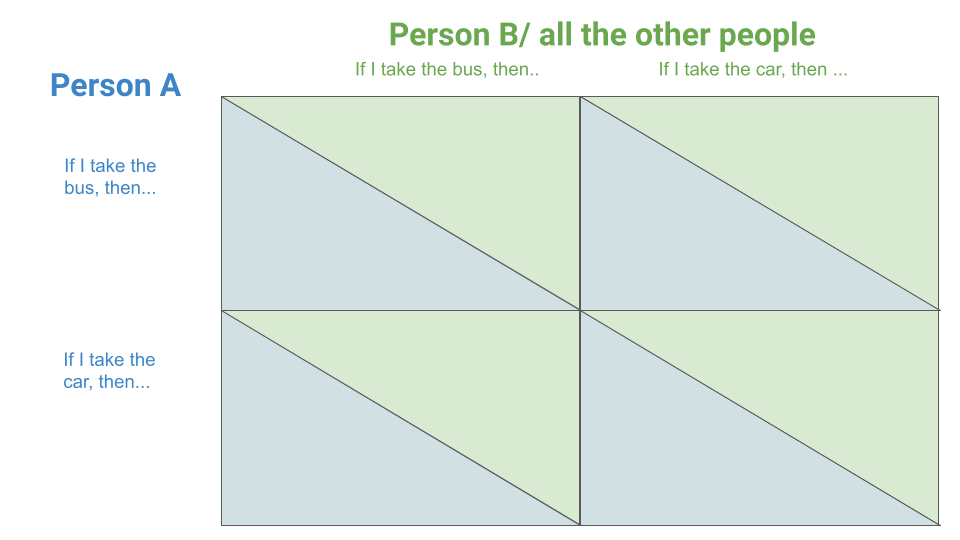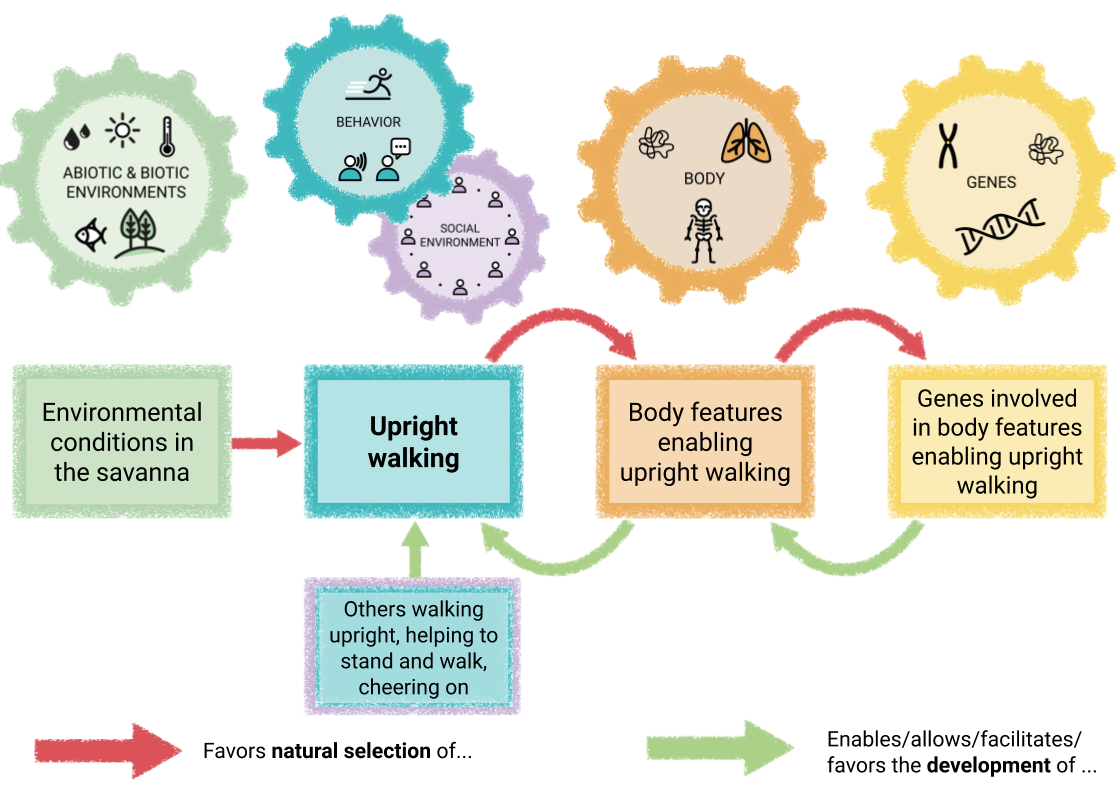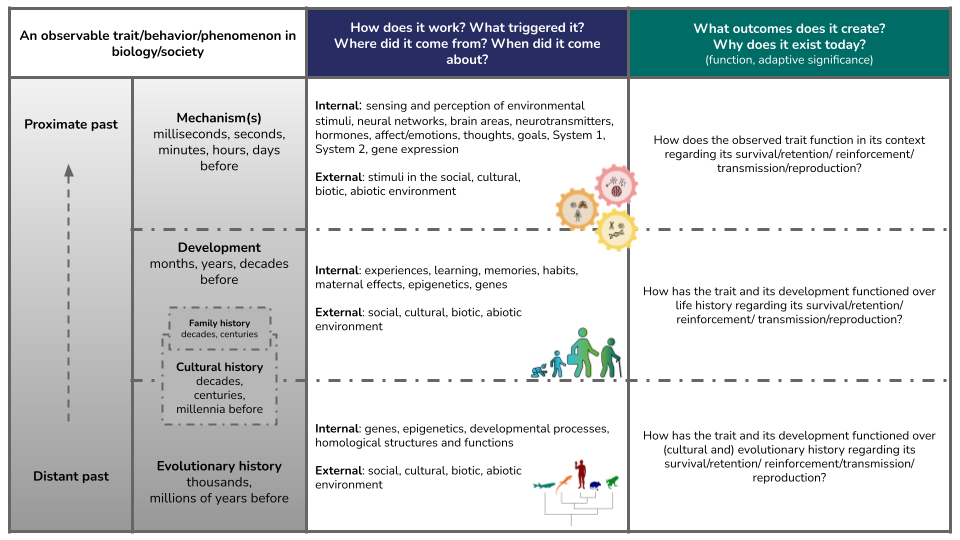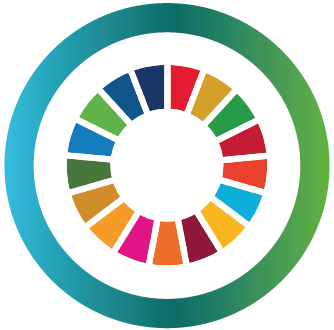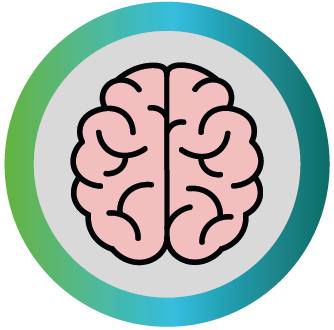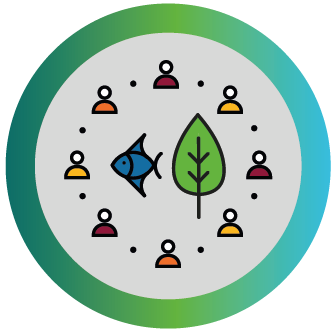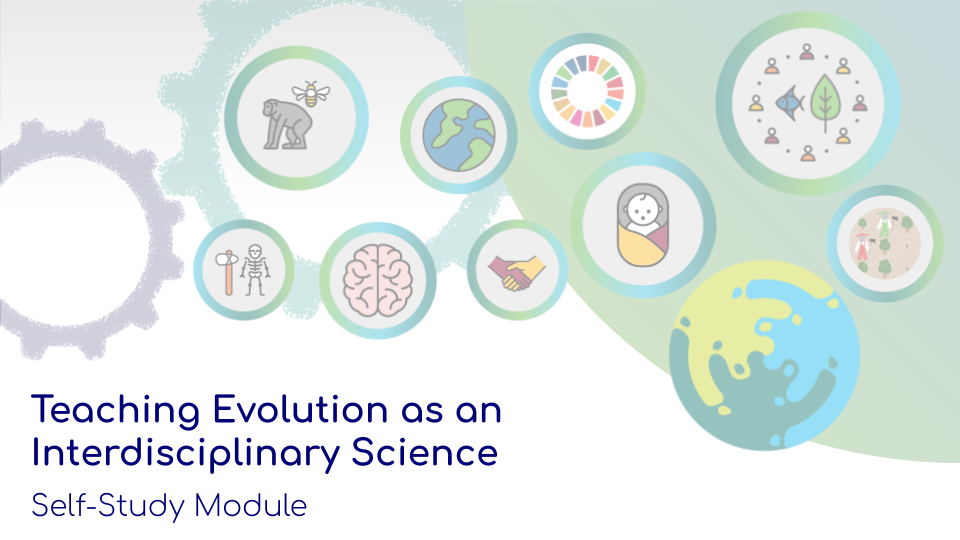Payoff matrices can help us analyze the behavioral strategies and possible outcomes in diverse situations across biology and society.
Subject Area: Social Studies
Causal mapping helps us reflect on the interdependent relationships within complex systems
Analogy mapping is a tool for thinking about similarities and differences between different concepts or phenomena.
Tinbergen’s Questions can help organize complex causality of behaviors and other phenomena across time.
How can we use insights about human evolution, human behavior, and the causal interactions in social-ecological systems to address local, regional and global sustainability
What can we learn from our own thoughts and intuitions about human evolution, behavior, and sustainability? Understanding the causes of our perceptions, intuitions, and
What can we learn from communities around the world managing shared resources about human evolution, behavior, and sustainability? Exploring diverse sustainability dilemmas in the
What can we learn from the diversity of human cultures about human evolution, behavior and sustainability? Studying the behaviors of humans around the world
Use the Doughnut Economics Action Lab (DEAL) resources to develop an analysis of your city and/or school community in relation to social and ecological
Human Evolution Resources Gene-culture Co-evolution Biological evolution and cultural evolution are not mutually exclusive. On the contrary, they can influence each other. Genetically evolved

